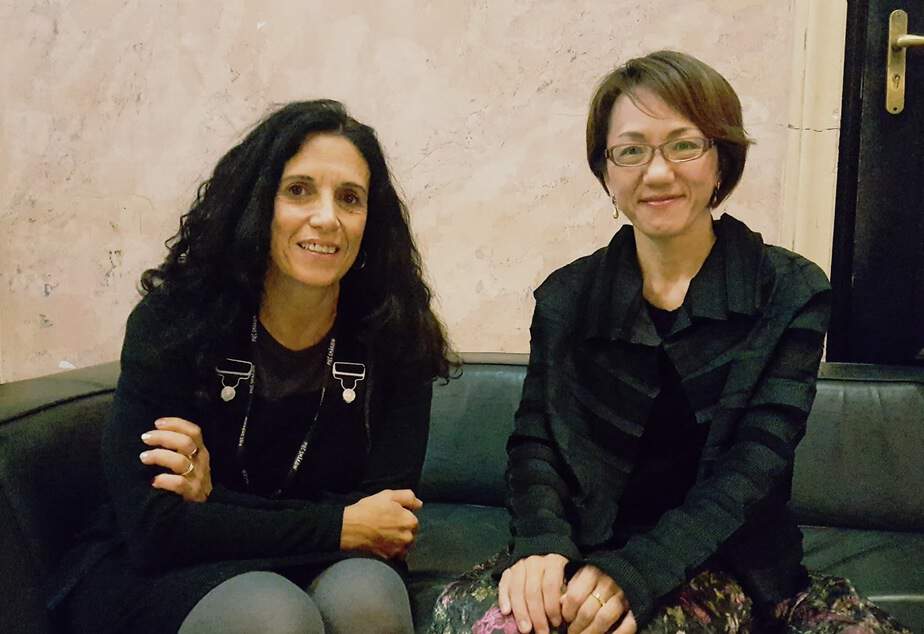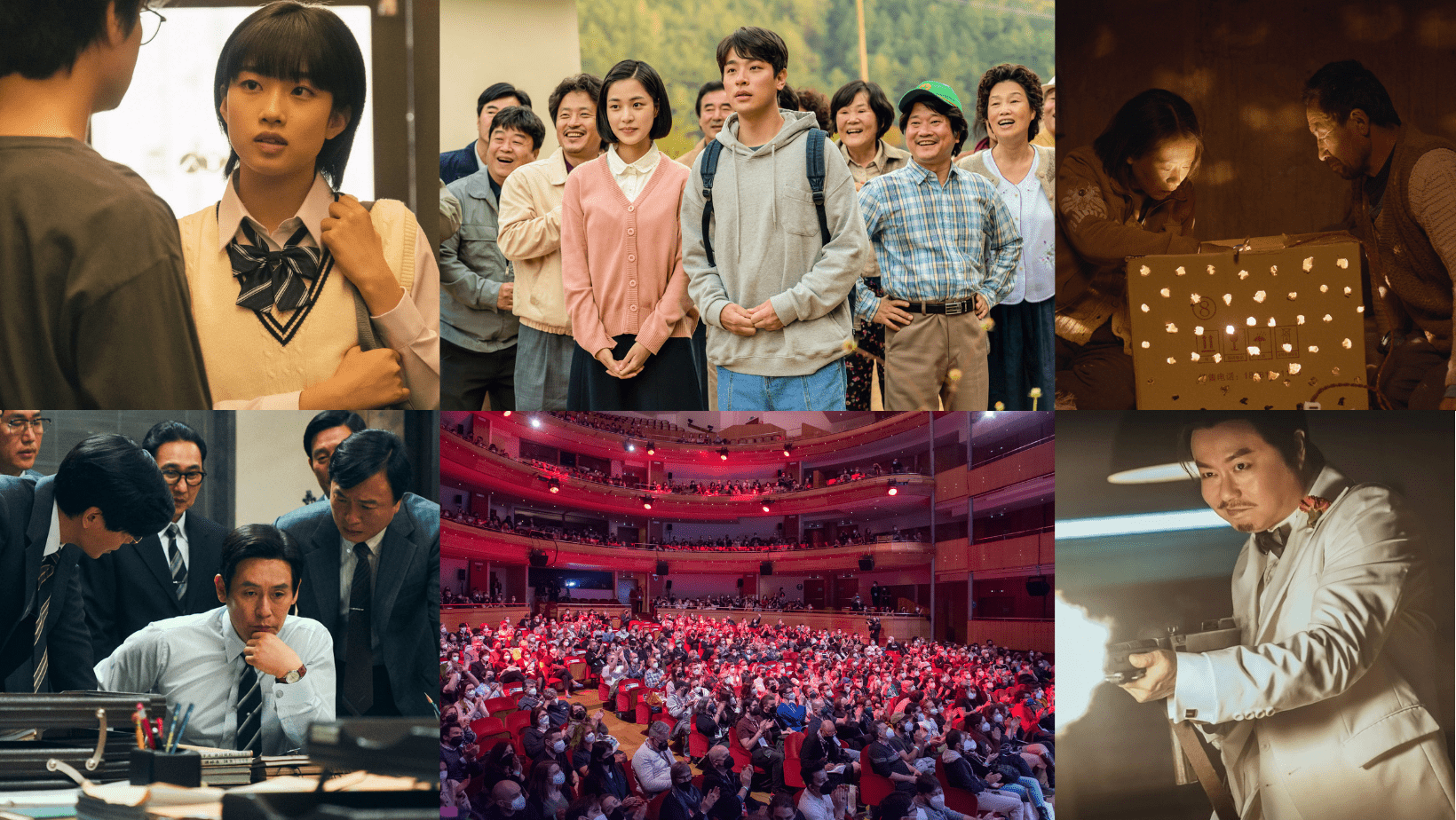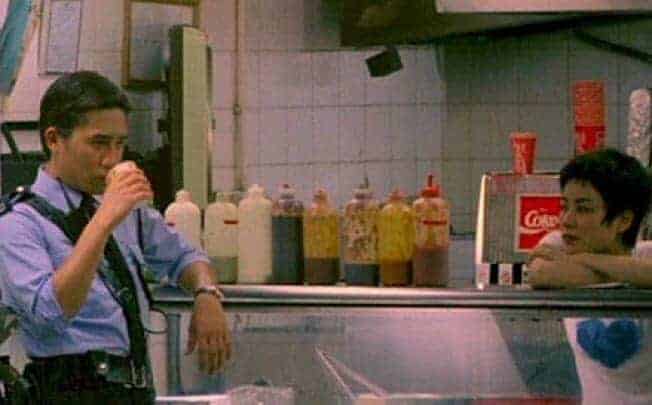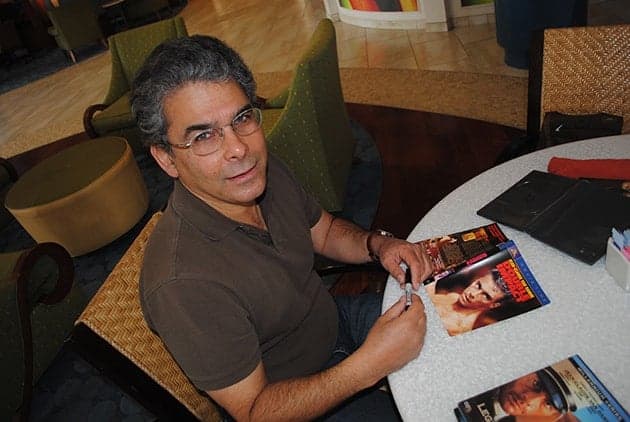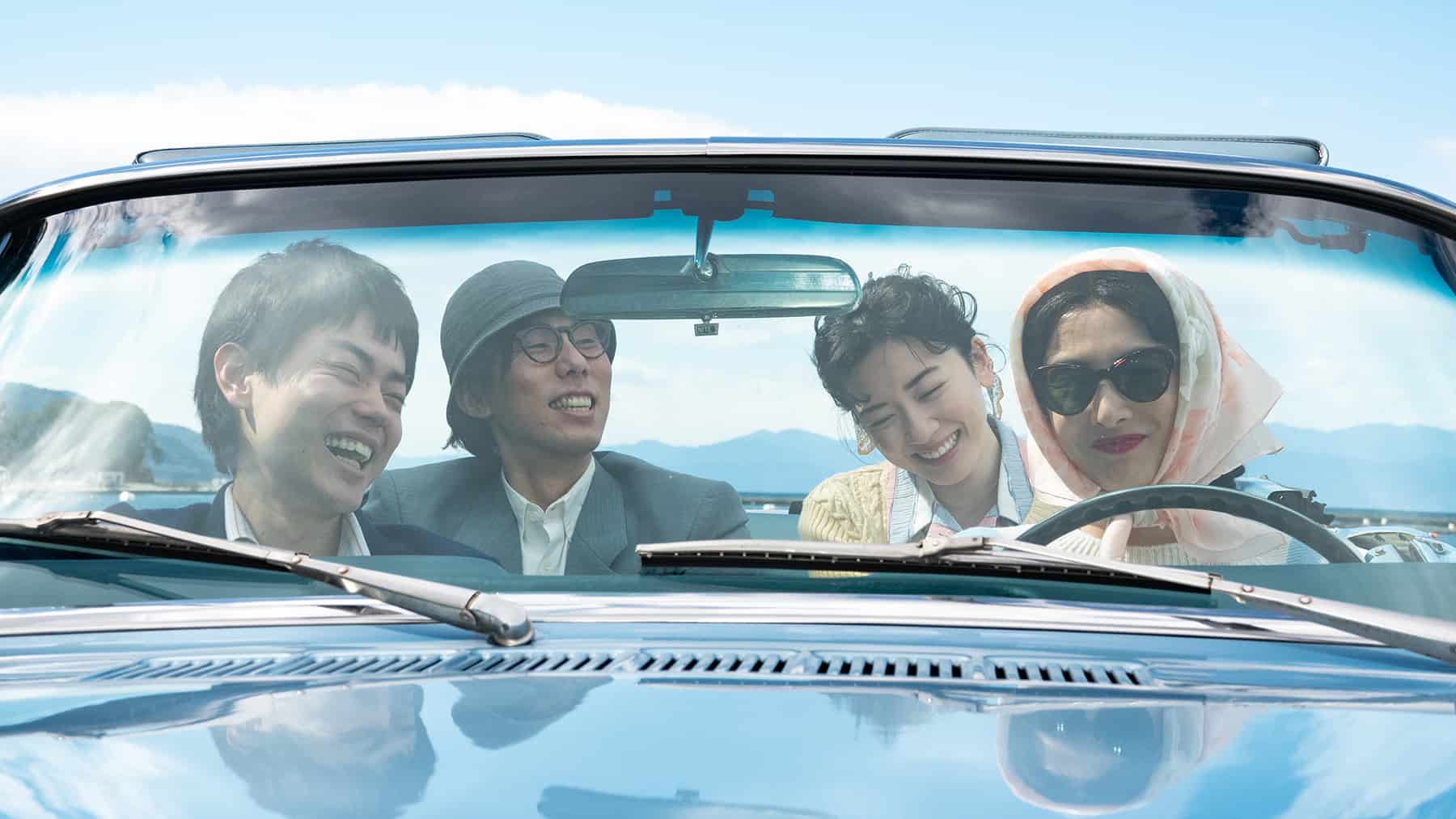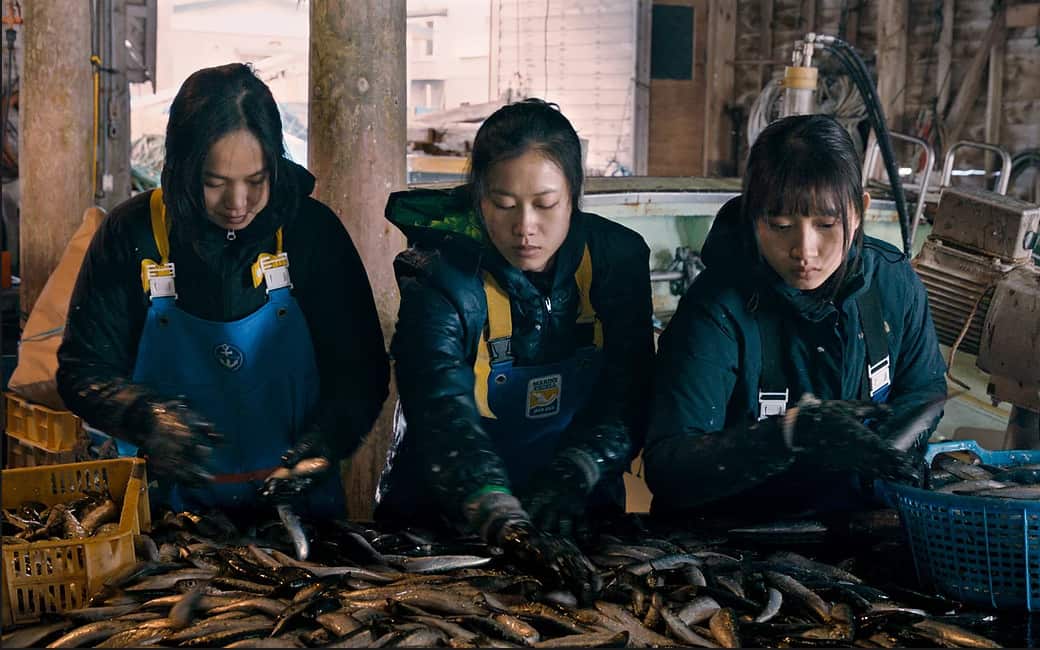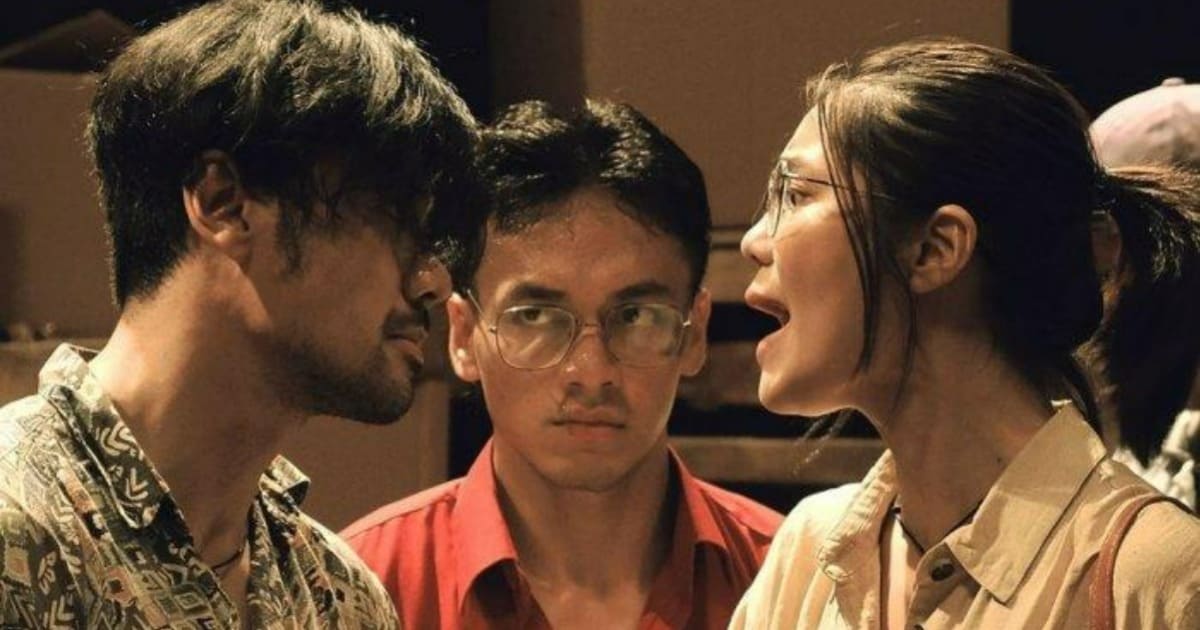Born in 1972 in the Chiba Prefecture. In 1994, she left for the US where she studied directing at the University of South California. Her sweet and melancholic films, with a characteristic visual style, are enormously popular among the audiences, often appearing at international festivals. “Glasses” and “Rent-a-cat” were shown in the “Japanese Female Directors” retrospective at 9th Five Flavours.
This year, she comes back with her new film “Close Knit”, taking up the subject of transsexual people in the Japanese society, made in a convention of a charming, bitter-sweet family film. The movie received the Teddy Award at this year's Berlinale.
On the occasion of her film, “Close-Knit” screening at Five Flavours, we speak with her about the stigma of being at one time unemployed, single and at your parent's house, Scandinavian knitting men and everyday food.

Can you tell us what was most significant experience that made you become a filmmaker? You went to the Southern California University, was that the experience that shaped your career?
Well, at the very beginning I studied photography and the science behind the images, but I had friends that were much better photographers than me and I got discouraged and gave up becoming a photographer, and as I was interested in movies I decided to go to USC. I didn't know anything about filmmaking and there I learned everything. Since I had studied science, I had never wrote any novel or story and for me the writing process was the most difficult obstacle and I tried and tried to overcome it. Writing a script is very different from writing a novel, writing a stylistically good sentence is totally different from writing a good story. For me writing a script is more like a puzzle and when I learned to write it, I really wanted to become a director.
How was your return to Japan after USC? Easy?
Oh, no, totally not easy! I mean, I didn't have a job, I didn't have a boyfriend, no money, I didn't have antyhing.
And did being a woman make it more difficult?
Once I went back to Japan, I was staying at my parents' house and the people and the neighbours were looking at me and thinking: “She is a loser” because I was staying at home and I didn't have a job or a husband. So in that respect, being a woman made people think that at least I had to get married and be a housewife.

Is this kind of idea still so ingrained in Japanese society?
Oh yes, and then when I got a boyfriend and we went on living together, then all of a sudden everything was fine (laugh). Yes, it's very strange being a woman. On the contrary, as a film director I didn't actually have any problems. I made totally independent movies that were shown at the Five Flavours Film Festival (“Rent a Cat” and “Glasses” were part of Focus Japan of the 9th edition) and consequently I had a chance to make this movie film. And nobody never had any kind of discriminations against me as a woman director. I was lucky.
Can you tell us how was the reception of “Close Knit” in Japan?
Oh, it was very successful in Tokyo and Osaka, the two big cities, but unfortunately in the countryside not many people went to watch it.
Why do you think this happened, because of the subject?
I guess so, transgender issues are something of a taboo that countryside people have yet to accept. I was very shocked actually, I didn't expect it because we have a popular show on TV with a big transgender star, a comedy that we love and appreciate, but I guess that if LGBT people are in the family or neighborhood, that is a totally different story, they are not accepted.

Was it difficult to get Toma Ikuta to play the transgender character? As he is very popular with female audience and in a way had to play against type, how did you manage to get such a good performance out of him?
He was really good and he was my first choice, I actually thought he was going to decline my offer, I was really afraid he would because of his image and his female fanbase, but I didn't have to convince him, he liked the script and accepted.
The biggest problem we had was finding clothes for him, he has a beautiful face and I thought he could easily be a beautiful woman but his body is masculine and big, so we had a wardrobe issue, and almost all his clothes had to be remade to measure. Also, the hairstyle was a bit of a challenge, we started filming with him sporting long hair but he looked like a prostitute, or a nightclub escort, so we tried many hairstyles before settling on that one more apt to an ordinary woman. We also had a tutor to teach him feminine gestures and postures, how to hold a cup and drink, how to sit down and walk. He worked really hard on that.
And how was his interaction with the little girl?
Oh! She is a real genius!
Was it a difficult or long casting process?
I saw about 200 girls and finally she appeared. She was really good, I feel like I found a diamond! She was extremely easy to work with, she is just great!
And can you tell us how this idea of knitting made its way in the script? Are you a knitter yourself?
Not at all (laugh).
Such a genius idea!
Thank you! Well, At the time when I was writing the script, I went one day to a bookstore and saw a photography called “Arne & Carlos”, of a Norwegian gay couple, sitting side by side and knitting together. That photo was so cute and it was my inspiration to use the knitting as a motif but then I couldn't think of what she was going to knit. I have been thinking and thinking for 2 weeks and then finally the idea came about, and I was like: “Yes, she is making THOSE!”

Do you have a fascination for Scandinavian countries? Even your film “Kamome Diner” is set in Finland. Why Finland?
Oh yes, I do have it indeed. Finland is a very special place, very slow, they have a very simple life style but yet of very good quality.
Is it why you centered it on simple and good soul-food?
Yes, correct.
In “Close Knit” too, food seems to be a vehicle for love and family bonds, the girl is nauseated by the convenient-store onigiris that her mum keeps feeding her and as a proof of Rinko's love she says: ” She makes me nice bentos!”
True, but I think this maybe is for almost everybody. As a Japanese mother, you have to cook a three course meal for your kids, not just one dish, like – sorry to say – American people that can make dinner with a pizza delivery.
I am Italian and I can relate with that, but not all the countries feel the connection between food and family in the same way.
Yes, you are right, in societies like Italian, Chinese, Japanese food is more important. Also, I like to depict normal life of people and because we do three meals per day it's not strange that there are some scenes with food. It's inevitable.


